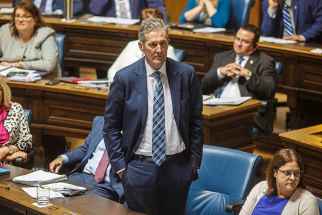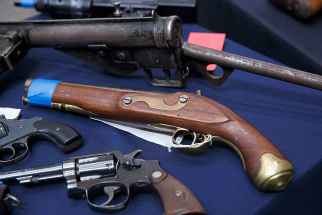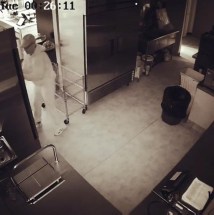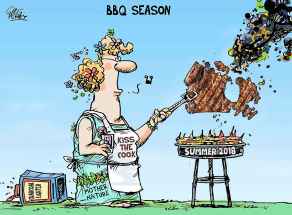Manitoba gun amnesty draws hundreds of weapons, no promises
Read this article for free:
or
Already have an account? Log in here »
To continue reading, please subscribe:
Monthly Digital Subscription
$0 for the first 4 weeks*
- Enjoy unlimited reading on winnipegfreepress.com
- Read the E-Edition, our digital replica newspaper
- Access News Break, our award-winning app
- Play interactive puzzles
*No charge for 4 weeks then price increases to the regular rate of $19.00 plus GST every four weeks. Offer available to new and qualified returning subscribers only. Cancel any time.
Monthly Digital Subscription
$4.75/week*
- Enjoy unlimited reading on winnipegfreepress.com
- Read the E-Edition, our digital replica newspaper
- Access News Break, our award-winning app
- Play interactive puzzles
*Billed as $19 plus GST every four weeks. Cancel any time.
To continue reading, please subscribe:
Add Free Press access to your Brandon Sun subscription for only an additional
$1 for the first 4 weeks*
*Your next subscription payment will increase by $1.00 and you will be charged $16.99 plus GST for four weeks. After four weeks, your payment will increase to $23.99 plus GST every four weeks.
Read unlimited articles for free today:
or
Already have an account? Log in here »
Hey there, time traveller!
This article was published 31/07/2018 (2693 days ago), so information in it may no longer be current.
Against the backdrop of a national conversation on a push for a federal handgun ban, Manitoba police announced Tuesday nearly 700 firearms were collected during the province’s recent month-long gun amnesty.
Firearms turned in during gun amnesty:
RCMP
Long guns: 248
Handguns: 36
Replicas: 1 (prohibited)
Brandon Police Service
Long guns: 36
Handguns: 5
* – statistics for the Winnipeg Police Service and other police departments were not immediately available Tuesday
On top of the hundreds of firearms collected by 13 police agencies across the province, more than 22,000 rounds of ammunition were turned over to law enforcement.
The program, which took place in June, allowed Manitobans to hand over unwanted firearms to police without facing criminal charges – unless the weapon was found to be stolen or implicated in a crime.
“I think what’s incredible is how many people came forward. The numbers that we had, they exceeded other years a gun amnesty has taken place,” Justice Minister Heather Stefanson said.
The minister’s comments came during a joint law enforcement news conference at Manitoba RCMP headquarters in Winnipeg. Stefanson began her address by mentioning Toronto’s recent mass shooting, and offering her “sincere condolences to the families of the victims.”
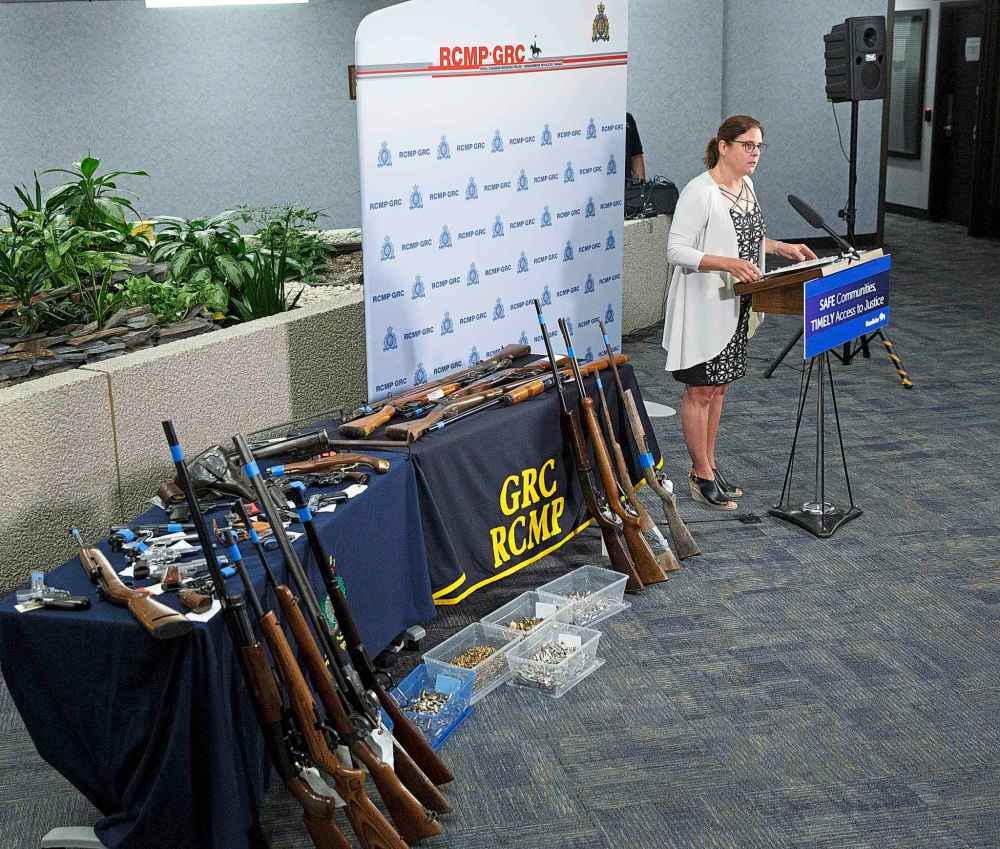
Faisal Hussain, 29, went on a shooting rampage in the city’s Danforth neighbourhood July 22, killing Julianna Kozis, 10, and Reese Fallon, 18. He also injured 13 others, before reportedly turning the gun on himself.
In response to the shooting, Toronto city council voted in favour of petitioning the federal government to implement a ban on handgun sales in the Ontario capital, while asking the province to do likewise with ammunition.
Standing near the spot where Hussain opened fire on unsuspecting citizens, Prime Minister Justin Trudeau told reporters Monday his administration was doing research into — and mulling — a potential handgun ban.
“We’re taking a look at things that have been done around the world. Things that have been done in other jurisdictions, looking at the best evidence, the best data to make the right decisions to make sure that we are ensuring that our citizens, our communities are safe into the future,” Trudeau said.
Q + A

An exchange Tuesday, between Manitoba Justice Minister Heather Stefanson and a Free Press reporter on a potential handgun ban:
An exchange Tuesday, between Manitoba Justice Minister Heather Stefanson and a Free Press reporter on a potential handgun ban:
FP: You started your comments by mentioning the recent shooting in Toronto. In response to that shooting, city council in Toronto proposed a handgun ban. (Prime Minister) Justin Trudeau has said they’ll be looking at that. Is that something the province of Manitoba is considering, looking at at all, or would support?
HS: I know the federal government is looking at guns and gangs initiatives. It’s something that we have discussions about at our federal-provincial territorial meetings. We’ll continue to have those discussions with our counterparts across the country.
WFP: Are you having internal discussions about it at a provincial level, specifically the handgun ban?
HS: Right now, we’re continuing to look to law enforcement for their advice and to other stakeholders in the community. We’ll continue to look to that advice when it comes to how we create safer communities for people in our province.
WFP: Do you, as justice minister, think a handgun ban is called for or needed?
HS: I look to experts for their advice on that. We will continue to work with law enforcement and other experts in the field to see and develop policies around those.
WFP: What are you hearing from experts in the field?
HS: I think (the gun amnesty) is a primary example of what we’re hearing. That it’s important to get some of these guns off the street. So that’s why we launched this program in June. We agree with law enforcement that these types of programs are good to create safer communities, and that’s why we’re here today.
On Tuesday, Stefanson repeatedly side-stepped questions on whether the Manitoba government is considering a handgun ban or would support such an initiative at a federal level.
“Gun violence that has plagued Toronto and many other communities in our country is further evidence of why we must remain vigilant to prevent the use and proliferation of illegal and stolen firearms,” Stefanson said.
“I know the federal government is looking at guns and gangs initiatives. It’s something that we have discussions about at our federal-provincial territorial meetings. We’ll continue to have those discussions with our counterparts across the country.”
Under Canada’s current firearm laws, handguns are designated a restricted weapon.
Prospective owners must pass background checks, practical and written exams, and attend two-day safety courses. They also have to be a member of a shooting club. Transportation of the gun is effectively limited to and from a personal gun safe and the shooting range.
According to Statistics Canada’s 2017 annual report on police-reported crime, violent firearm offences increased seven per cent across the country, up to 2,734 incidents. In Manitoba, however, the province registered a drop in the same category.
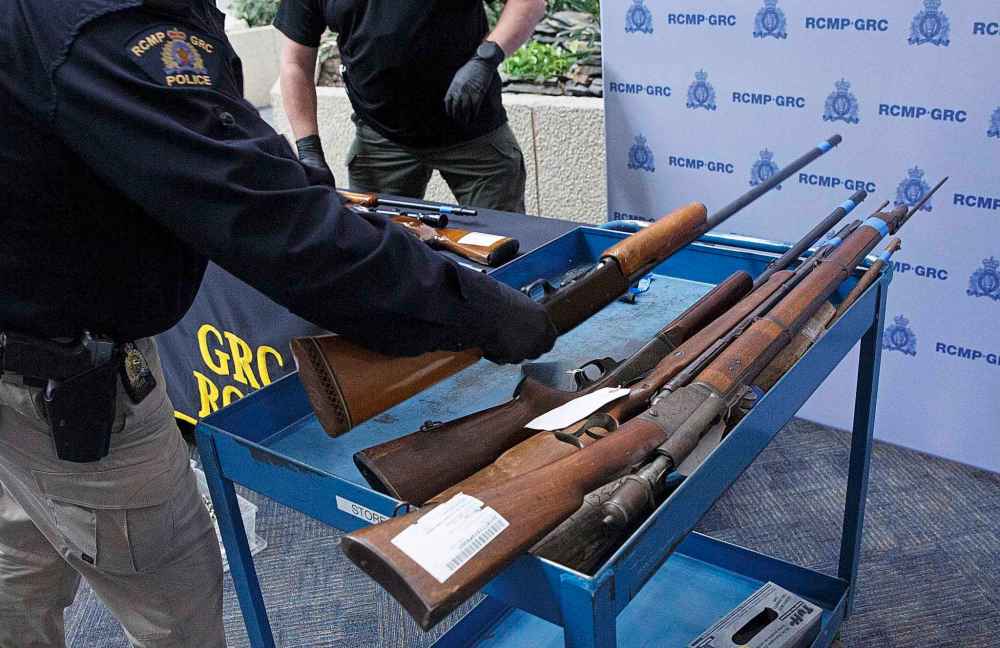
The Manitoba RCMP commanding officer said every firearm taken off the street during June’s gun amnesty is a victory for law enforcement.
“We’re watching gunplay go on. We’re seeing the violence in a lot of our communities. It’s a very unfortunate set of circumstances that happened in Toronto recently… The violence we’re seeing right now, it’s a major concern. Any firearms we receive, or ammunition, that’s a real bonus for us, because we know it’s one less on the streets,” assistant commissioner Scott Kolody said.
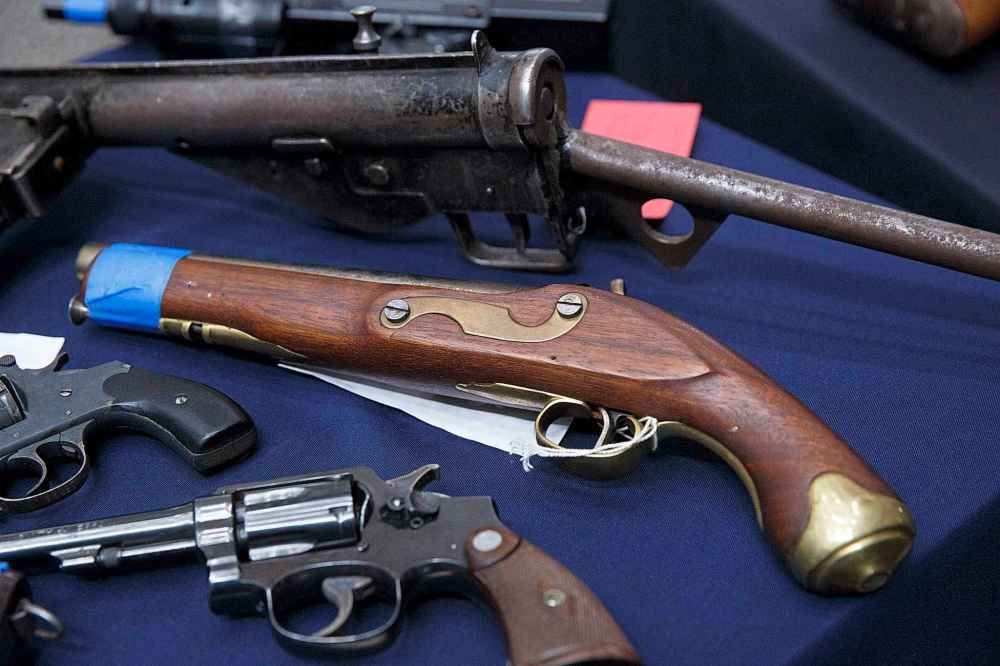
Each of the nearly 700 guns turned over to law enforcement during the program were subjected to an examination, Kolody said, aimed at tracking the weapon’s history.
No charges were laid in connection with this year’s gun amnesty.
Kolody said there’s no hard and fast rule on what kind of firearms – handguns or long guns – are most often used for crime, or whether they’re smuggled into the country or legally-owned guns that have been stolen and repurposed for illicit activity.
“We see long guns used (in crime). We see a lot of handgun play, and we’ve seen that throughout the country. We’re seeing guns coming in from all different places. They’re coming from across Canada. It’s not uncommon to see a handgun originate from one province or another, from one city or another. The same with criminal activity, it crosses borders,” the RCMP commander said.
The majority of firearms and ammunition collected during the amnesty will be destroyed, police said, while a few will be kept for historical or training purposes.
ryan.thorpe@freepress.mb.ca
Twitter: @rk_thorpe
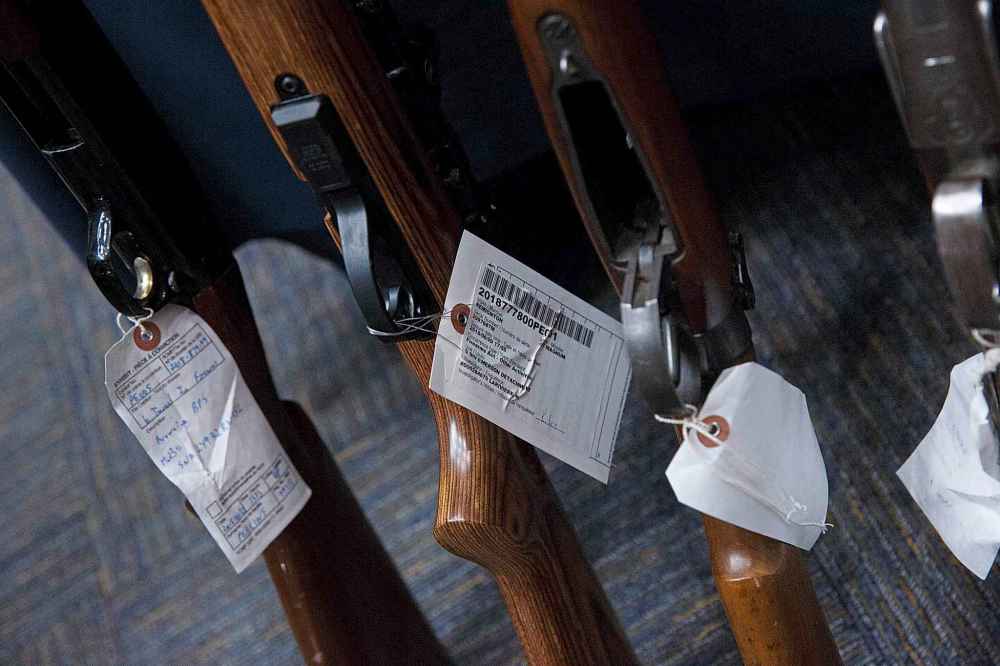
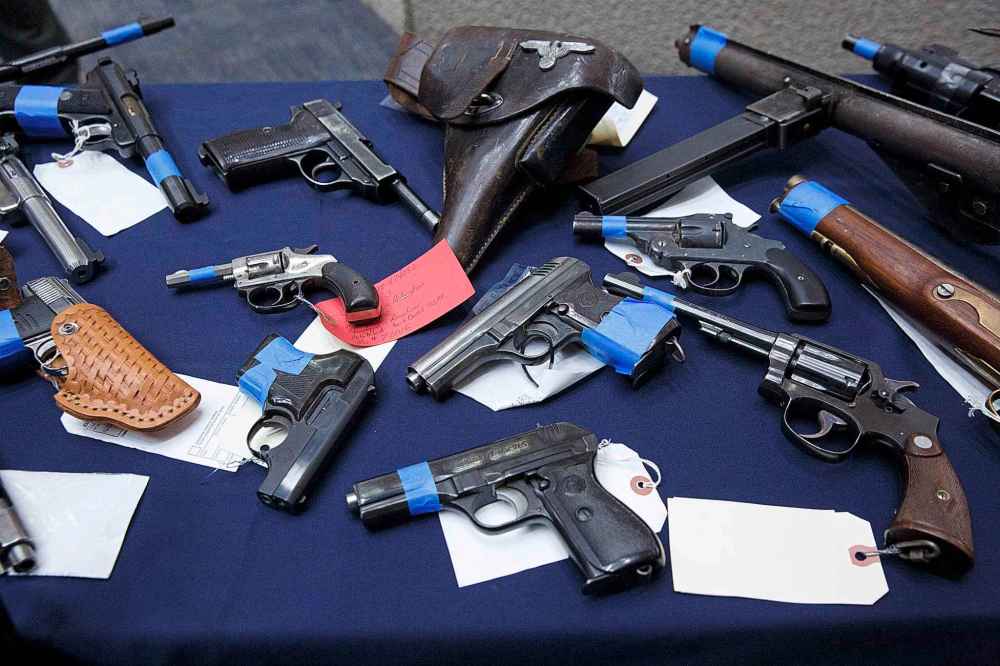
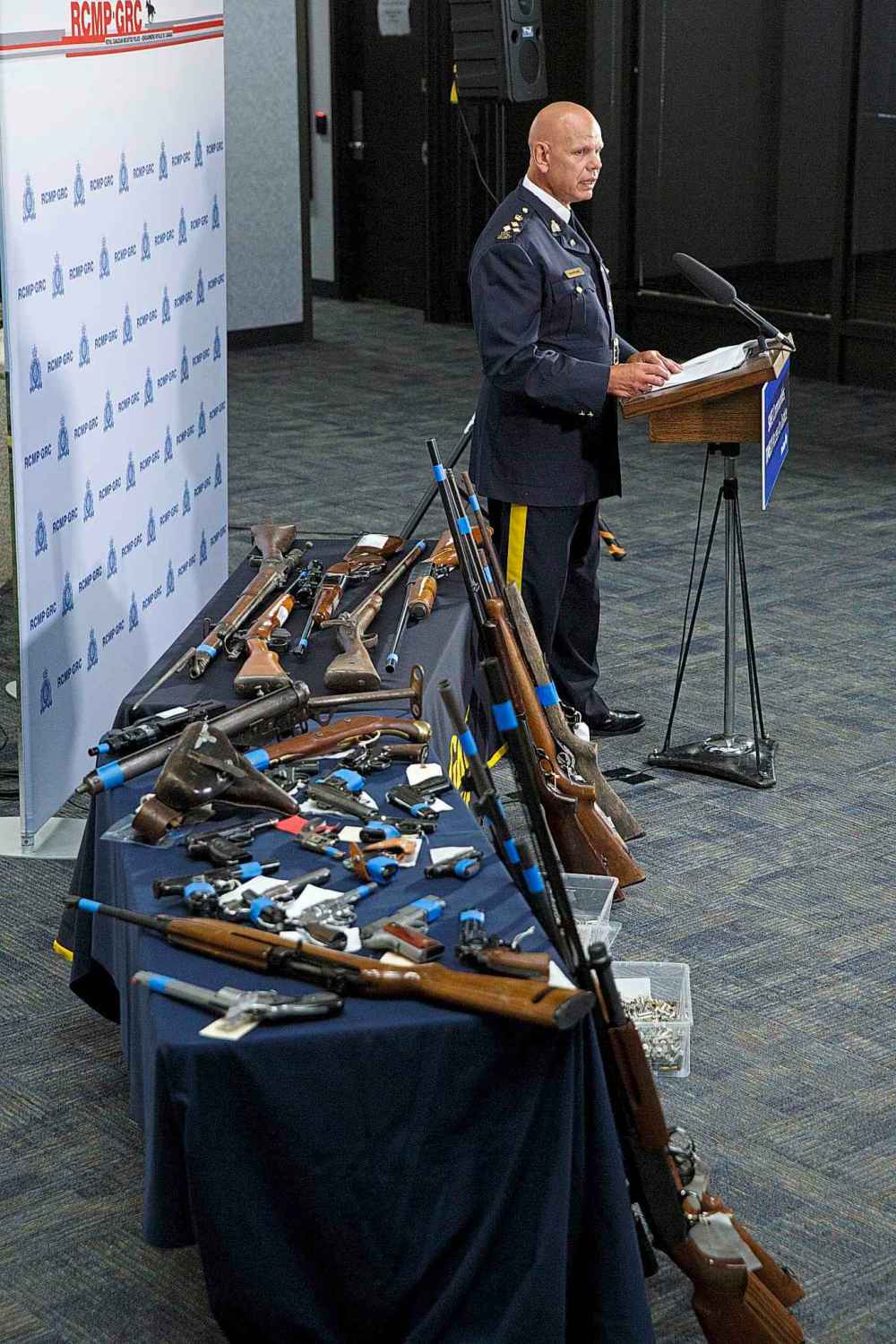
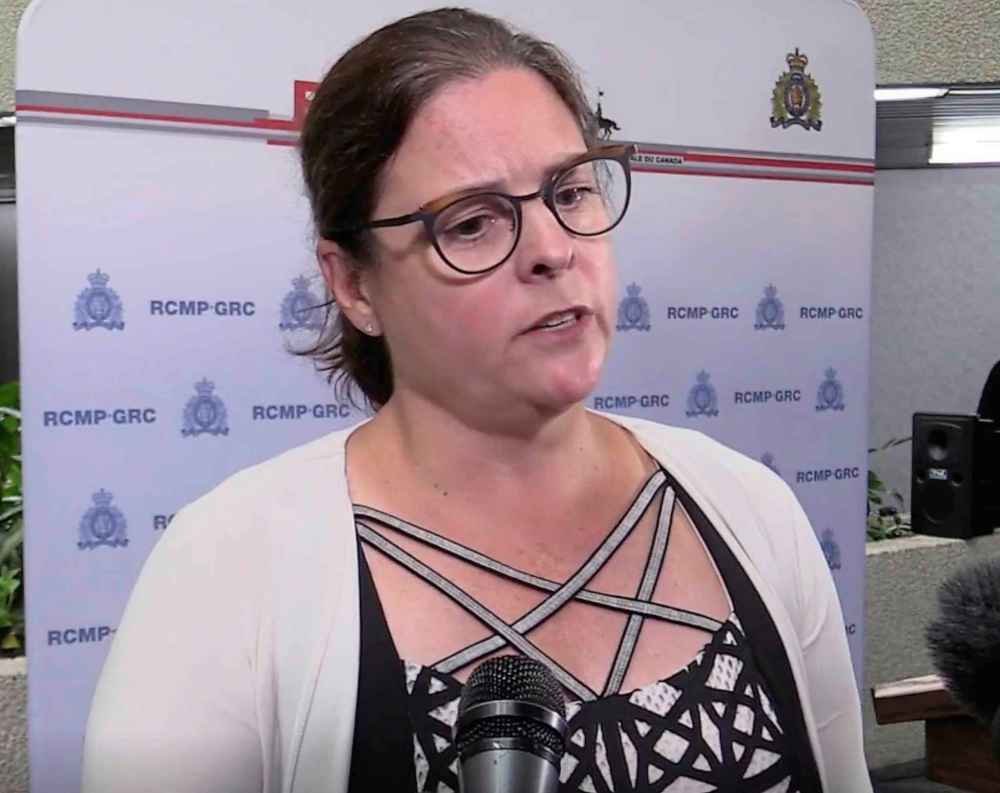

Ryan Thorpe likes the pace of daily news, the feeling of a broadsheet in his hands and the stress of never-ending deadlines hanging over his head.
Our newsroom depends on a growing audience of readers to power our journalism. If you are not a paid reader, please consider becoming a subscriber.
Our newsroom depends on its audience of readers to power our journalism. Thank you for your support.


